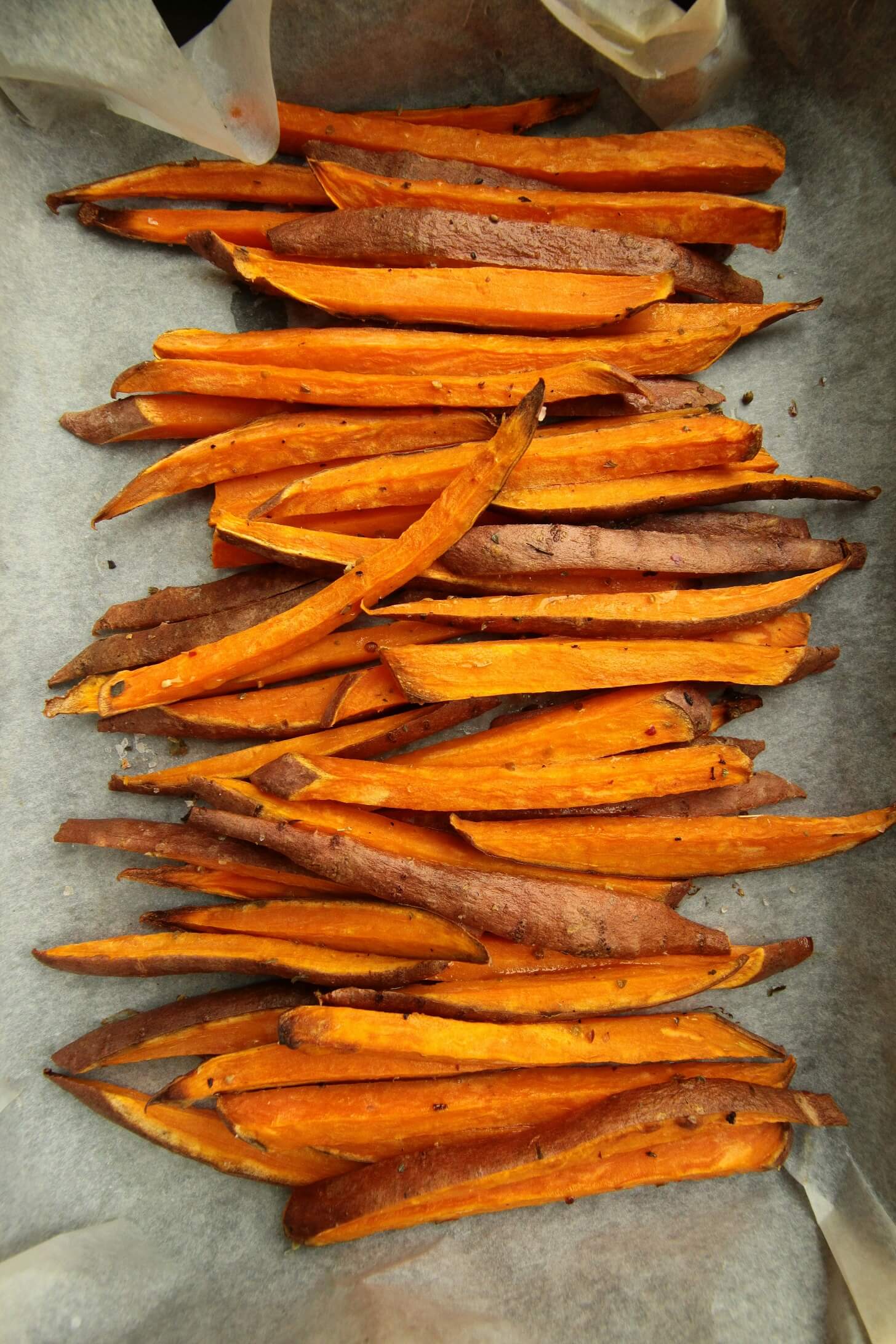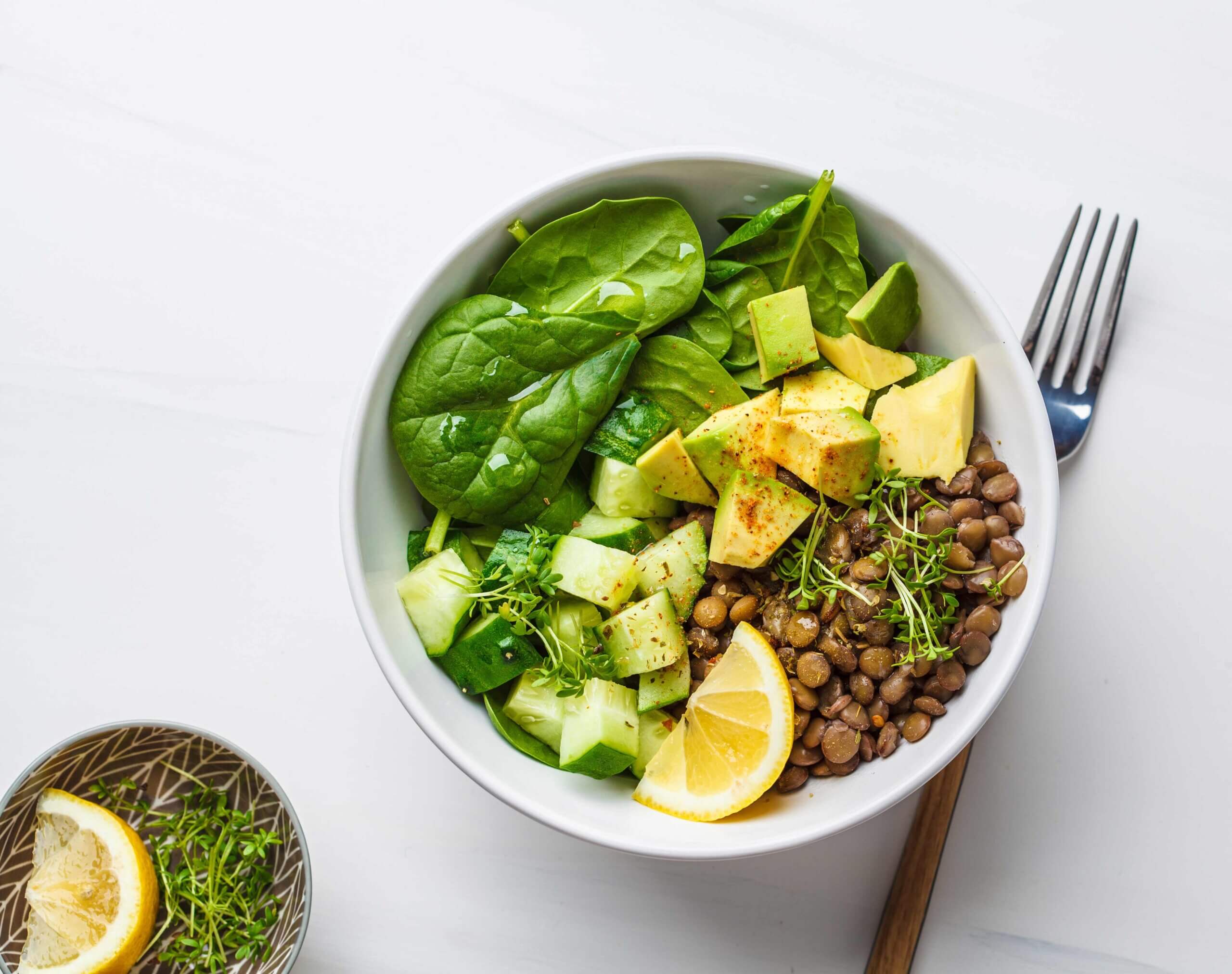Did you know that poor sleep doesn’t just affect your mood, but can also increase your risk of heart disease and depression? You’re not alone if you struggle to fall or stay asleep – many people experience sleep problems at some point. But the good news is: there are gentle, natural ways to support your body and mind.
In this article, you’ll find out why sleep is so essential, how you can improve your sleep quality, and how a plant-based diet can support better rest. Plus, I’ll share practical tips you can put into action straight away – from calming foods to bedtime rituals.
Why do we need sleep and what actually happens while we’re asleep?
Even if it doesn’t feel like it, your body is incredibly busy while you sleep. Sleep is when both body and mind recharge: your brain processes the day, stores memories and recovers. Without enough rest, we feel not only tired, but irritable, unfocused and more prone to illness.
It’s also when important physical processes take place: muscles recover, cells regenerate, and your hormone levels rebalance. In short: sleep is your body’s nightly repair mode. Imagine plugging in your internal battery each night – without it, you simply run flat.
How much sleep is healthy?
Sleep needs vary, but most adults do best with 7 to 9 hours a night. Getting less than 6 hours regularly can increase your risk of health issues like heart disease and diabetes. But oversleeping – more than 9 hours – isn’t ideal either. The key is balance: listen to your body. If you wake up refreshed after 8 hours, you’ve probably found your sweet spot.
Why can’t I fall asleep – even when I’m tired?
It’s a frustrating feeling – lying in bed, exhausted but wide awake. The reasons are often quite simple:
- Stress: A racing mind boosts your cortisol levels (the stress hormone), keeping your body alert.
- Blue light: The screens on phones, tablets and laptops emit blue light, which reduces melatonin – your sleep hormone.
- Poor sleep habits: Irregular bedtimes or a restless environment make it harder to switch into sleep mode.
- Nutrition: What you eat matters. Heavy, fatty or sugary meals before bed can disturb your sleep. It’s best to avoid big meals 2–3 hours before bedtime so your body can focus on rest instead of digestion.
“
If you spend too much time at night thinking about tomorrow's problems, you will be too tired to solve them the next day.
Rainer Haak
Can a plant-based diet help you sleep better?
Yes – and in more ways than one. A plant-based diet provides your body with nutrients that promote calm and support deep rest. Three nutrients play a key role: Magnesium, tryptophan and complex carbohydrates
- Magnesium helps your muscles relax and supports your nervous system. You’ll find it in leafy greens, seeds (like pumpkin or chia), nuts and legumes.
- Tryptophan is an amino acid that your body converts into serotonin, then melatonin – both of which help regulate your sleep–wake rhythm. It’s found in oats, soybeans, legumes, seeds and nuts.
Another important factor for better sleep is complex carbohydrates. They play a key role in supporting the natural production of melatonin – but how exactly? Complex carbs help increase the release of insulin, which in turn enables more tryptophan to enter the brain. Once there, tryptophan is converted into serotonin and then melatonin – both essential for restful sleep. This process helps your body wind down and promotes a deeper, more restorative sleep. Unlike simple carbohydrates, which can cause blood sugar spikes and disrupt your sleep, complex carbs are digested slowly. They provide a steady energy supply and help to keep your blood sugar stable throughout the night – another important building block for good sleep quality.
Here are some great vegan foods rich in complex carbohydrates – ideal for helping your body unwind and easing you into a peaceful night’s sleep:
- Sweet potatoes: Not only packed with complex carbs, but also a great source of potassium, which supports muscle relaxation.
- Quinoa: A gluten-free pseudograin that provides lasting energy and also contains magnesium and tryptophan.
- Oats: Naturally high in fibre, melatonin and complex carbs – a perfect trio for a calmer, more stable night’s sleep.
- Whole grain rice and whole grain bread: Slow-digesting carbs that help stabilise blood sugar and support your body’s sleep–wake rhythm.
By combining foods rich in magnesium, tryptophan and complex carbohydrates, a plant-based diet can help your body relax more easily and naturally improve the quality of your sleep.



Which other foods can help you fall and stay asleep?
Here are some gentle plant-based sleep helpers that are easy to add to your diet:
- Bananas: Rich in magnesium and potassium, they help your muscles relax.
- Oats: Naturally contain melatonin to support your natural sleep rhythm.
- Almonds: A great source of magnesium to improve sleep quality.
- Cherries: Contain natural melatonin and support your body clock.
- Pumpkin seeds: Provide magnesium and zinc to help convert tryptophan into serotonin.
- Hemp seeds and hemp milk: Rich in magnesium and omega-3s, they reduce inflammation and support relaxation.
- Sweet potatoes: Provide complex carbs and potassium to calm muscles.
- Chia seeds: High in omega-3s and tryptophan – both converted to melatonin and serotonin.
A gentle way to fall asleep: RINGANAisi
RINGANAisi is a natural plant-based drink designed to support relaxation and restful sleep. It contains carefully selected ingredients known for their calming effects:
- Passion flower: Soothes the mind and boosts GABA, a calming neurotransmitter.
- Lemon balm: Helps ease nervous tension and promotes better sleep.
- L-tryptophan: Converts to serotonin and melatonin, supporting your body’s sleep rhythm.
- Hop extract: Calms the nervous system and encourages deep rest.
This soothing combination gently supports your body’s natural melatonin production – helping you fall asleep faster and wake up feeling refreshed.
shop
Switching off isn’t always easy – especially after a long day. RINGANAisi is a gentle plant-based drink packed with natural extracts to help you unwind and sleep better.
Fancy a homemade bedtime drink?
Try this soothing hemp milk with banana and cinnamon – a calming way to end the day.
Ingredients:
- 250 ml hemp milk (or another plant-based milk)
- ½ ripe banana
- 1 tsp cinnamon
- 1 tsp maple syrup (optional)
- 1 pinch of nutmeg
Method:
- Slice the banana and blend with the other ingredients.
- Warm gently (do not boil).
- Enjoy slowly – and unwind.
Tip: Drink it around 45–60 minutes before bed so you’re not waking up for the toilet in the middle of the night.
Which foods should you avoid before going to bed?
- Caffeine: Avoid it at least 6 hours before bed.
- Alcohol: Disrupts your natural sleep cycle.
- Fatty foods: Can burden digestion and delay sleep.
- Sugary foods: Can trigger blood sugar spikes that keep you awake.


Top tips for falling and staying asleep
Here are some practical tips to help you fall asleep and stay asleep:
- Stick to a routine: Go to bed and wake up at the same time each day, even on weekends.
- Create a calm sleep space: Quiet, dark and cool is best.
- Move your body: Regular exercise helps, but finish workouts at least 3 hours before bedtime.
- Evening rituals: Try reading, journaling or taking a warm bath to help your body wind down.
- Limit screens: Put your phone away at least an hour before bed.
- Light evening meals: Choose sleep-friendly foods and avoid late-night snacks.
- Skip caffeine: Especially in the afternoon and evening.
- Keep the room cool: 16–18 °C is ideal. Open a window before bed if you can.
- Journal your thoughts: Writing down tomorrow’s to-do list or a few things you’re grateful for can help quiet your mind. I love using the 6-Minute Diary – it helps me end the day with calm, positive thoughts.
A personal recommendation:
I’ve been sleeping so much better since I started using the Headspace sleep meditations in the evenings. Each episode is around 20 minutes. The first part gently clears up common sleep myths and shares helpful tips. The second part guides you into a deeply relaxing meditation. I make a little ritual of it: I get cosy in my bathrobe, pull the hood over my eyes to block out the light, and just sink in. I’ve listened to each episode many times – and still love them.
You can find them on Netflix – here’s the link to the series.
Sleep is the foundation of your wellbeing. Start small: try one or two of these tips tonight, enjoy a relaxing evening ritual, or support your sleep naturally with RINGANAisi or a homemade drink. You might be surprised how quickly your body responds – and how much better you feel in the morning.
Disclaimer: This text is not a substitute for professional medical advice, diagnosis or treatment. It must not be used as a basis for self-diagnosis or for starting, changing or discontinuing medical treatment. Always consult a qualified healthcare professional if you have any health concerns or symptoms. Greentrinsic accepts no liability for any discomfort or harm arising from the use of the information provided.
Want to learn more? Discover the many health benefits of a plant-based diet for your body and mind.





